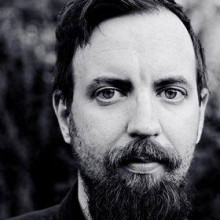Polish literature

Wojciech Zembaty
(born 1978) - prose writer. He studied at the Faculty of History of the University of Warsaw, then graduated from the MISH (College of Inter-Area Individual Studies In Humanities and Social Sciences). He contributed to the magazines Lampa i Iskra Boża, Latarnik, Przekrój, and Nowe Państwo. In his essays, he resembled writers acquainted to him such as Henryk Rzewuski and Jan Czayka. He also wrote the first Polish reportage on Japanese hikikomori and "gonzo" reports from the mountains of Transylvania and the Hutsul region. His essay on Witkacy, Dzień z życia ginących ssaków (“A Day in the Life of Endangered Mammals”), promoted Polish literature at the Madrid Fair.
In the Literary Department of TVN (Polish free-to-air television station), he cooperated with Dariusz Suska and Jakub Żulczyk. In the first season of Belfer (“The Teach”), he was responsible for ten percent of the script. The series received the Polish Film Academy Award and won the Empik competition. He also worked on the film Miasto 44 (“City 44”). In the meantime, he defended his PhD dissertation in anthropology at the Institute of Polish Culture of the University of Warsaw. His subject was Faust heroes and fear of technological progress. Fragments of the work were published in "Czas Fantastyki" magazine.
He's published seven stories for the Nowa Fantastyka magazine. His debut novel Koniec Pieśni (“The End of a Song”, Znak, 2011) begins with the death of the legendary King Arthur, and some of its themes take place in contemporary Warsaw. The action of the duology Głodne Słońce. Dymiące Zwierciadło (“Hungry Sun. Smoky Mirror“) and Głodne Słońce. Ołtarz i Krew (“Hungry Sun. The Altar and Blood”) takes place in an alternative reality in which the Aztecs defeated Europeans. The first volume won the Reflektor Award in 2016, which is granted to promising writers by the Nowa Fantastyka magazine.
He has two children and has been living in Japan with his wife Hiromi for several years. Since 2018, he has been cooperating with the Adam Mickiewicz Institute and Culture.pl, where he writes, among others, popularising texts about Polish history in English.
BIBLIOGRAPHY
- Koniec Pieśni, Znak, Cracow 2011
- Głodne słońce. Dymiące zwierciadło, Powergraph, Warsaw 2016
- Głodne słońce. Ołtarz i krew, Powergraph, Warsaw 2019